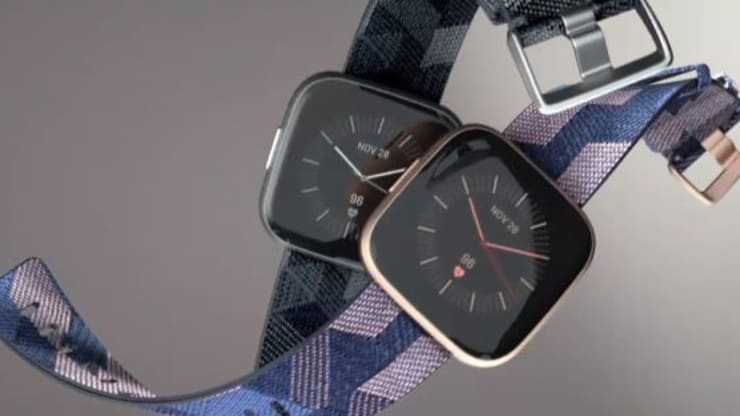
Fitbit just announced the Versa 2 smartwatch, the company’s new Apple Watch competitor that will launch on Sept. 15 starting at $199.95.
Two special edition models with unique bands and access to Fitbit Premium will cost $229.95, the company said Wednesday.
While the watch itself may not help fix Fitbit’s sinking revenues, new services that tie into the Versa 2 and other products may.
The Fitbit Versa 2 has a few upgrades over the original Versa. It’s has a more powerful processor, which means apps and data load quicker. Also, it offers up to five days of battery life, which is a lot longer than the two or so days you can expect from an Apple Watch. And unlike the Apple Watch, the Versa 2 can track sleep, with a new “sleep score” that averages the data it collects while you snooze and tells you how well you slept.
Apple may introduce new Apple Watches in early September, when it’s also expected to introduce its latest iPhones.
The Versa 2 has a new AMOLED screen with an always-on feature. The Apple Watch also has a colorful OLED panel, but doesn’t have an always-on display. Instead, you need to lift your wrist to wake it and check the time.
The Versa 2 also supports the Amazon Alexa voice assistant, which you can talk to to start workouts, check your schedule, control your smart home or respond to text messages on an Android phone. (The text message feature isn’t supported on iPhone.) The Apple Watch has Siri, which can be used for similar functions.
Other features include water resistance up to 50 meters, support for using the Versa 2 for making payments, 15+ exercise modes, female health tracking, on-device workouts and 24/7 heart-rate tracking. It doesn’t have its own GPS but can use your phone’s GPS for location information.
The Versa 2 will support Fitbit Premium, a new subscription service launching this fall that will cost $9.99 per month or $79.99 per year that will provide more information about your health trends. Later in the year, Fitbit will launch a health coaching pilot that lets you chat with trained health professionals for an additional fee. Health coaching will launch more broadly in 2020, the company said.
The subscriptions may help Fitbit generate new revenue. Shares of Fitbit cratererd as much as 21% on July 31 when it reported its second quarter earnings and lowered its fall revenue guidance by $95 million to $1.455 billion. Recurring subscriptions could help in this regard, especially since customers probably don’t buy every new model Fitbit releases.























